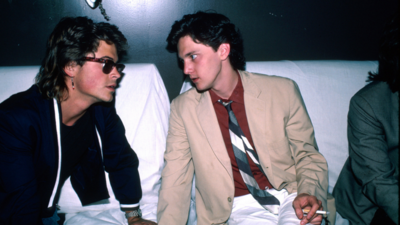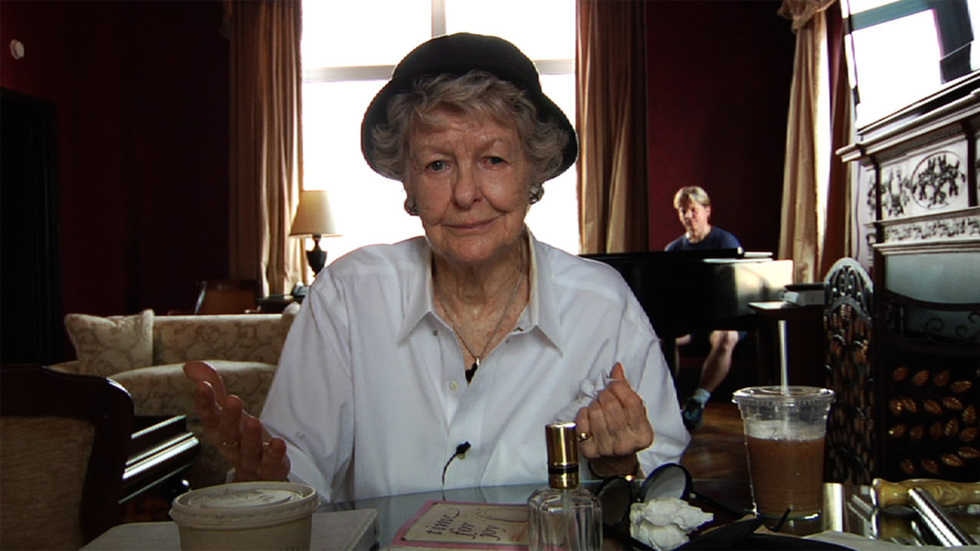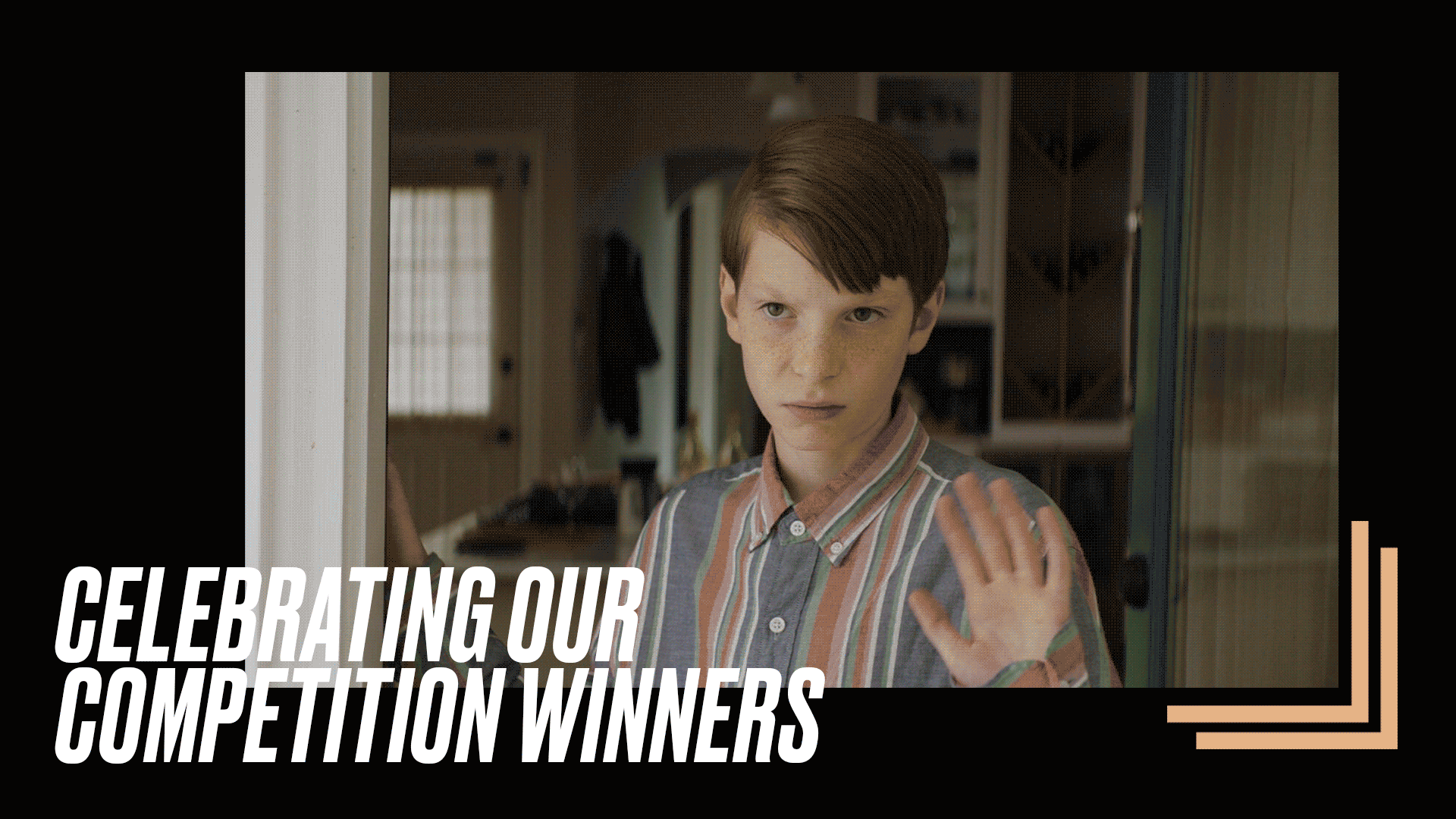
BY LINDSAY ROBERTSON |
'Elaine Stritch: Shoot Me' Director Chiemi Karasawa On Her Icon Doc
We talked to the director of the TFF 2013 doc "Elaine Stritch: Shoot Me" about how she convinced Stritch to participate in her movie, the pros and cons of crowdfunding, and the challenges of filming an icon.

Tribeca: Was the film really your hairdresser's idea?
Chiemi Karasawa: You’re gonna laugh: I’m actually on the way to see my hairdresser now, and yes, that’s exactly how it happened. I saw Elaine in the salon and I said Elaine Stritch? And (her hairdresser, PA) said yeah, and then a few weeks later he said, 'you know you should really make a documentary about her' because he knew what I did -- I produce documentaries -- and that was really the genesis of the idea, and then I went home and sort of did the requisite Googling and downloading and YouTubing and all that stuff, and I thought Oh my god, he’s right! And I thought about "At Liberty" (Stritch's one-woman show, televised in 2002) and I just thought it was amazing and inspiring. How could everybody not know about this woman? She should be a household name. And that was really sort of my motivation when I started the project, just expose people to the history I’d been exposed to in my research and just open her audience up to much more than theater goers.
Tribeca: And to a younger generation.
C.K.: Yeah a younger generation, a whole new generation. I mean, I’m in my 40s and I feel like I’m sort of at the cusp. Someone my age will either have seen all of her stuff or none of her stuff, or nowhere but 30 Rock. But she has so much to teach people, and inspire people. Her journey is so remarkable and she’s such a singular talent. She just embraces the power of being unique and I think that’s such a wonderful thing for a performer to have, is just their own unique gift. She’s just a fantastic example of that. That was it’s intention.
Tribeca: How did you first approach her about it? Was it through your hairdresser?
C.K.: Literally it was the salon. I think PA made the introduction, and she said it sounded like a good idea and she was interested in it, but she was in the middle of “A Little Night Music” with Bernadette Peters and she said she didn’t want to do anything until she was done with that; she was very adamant about that. But I kept thinking, god what a wonderful opportunity it would be to shoot her finishing up “A Little Night Music,” a Stephen Sondheim show with Bernadette Peters. So I think I got on her nerves a little bit because every now and then I’d run into her at the salon and I’d want to keep sort of moving things along. It was kind of like a nervous courtship for a couple of months, and then finally I realized she wasn’t going to give in and I wasn’t sure that she wanted to do the film, actually. She sounded like it was going to be an aggravation to her, and I know she didn’t really understand what it entailed. When I talked to her about it she was like, ‘Well what would you want to film?’ I was like, "you know, just be around you, and see what your process is, and what you do in your day to day life." She said, ‘But what do you want to see me doing?’ And I was like, ‘Just living your life!’ And she just didn’t understand.

Tribeca: Because she’s such a performer, probably.
C.K.: Exactly and I think any performer would think the same thing. "What the hell would you be getting?" I won’t mention their names but I talked to a couple of people that know her very well and they were like, "You know, Elaine’s story is basically told in At Liberty. I don’t know what you think you’d be doing, what you think you’d be telling." I wanted to do the inversion of At Liberty. I wanted to see behind the scenes, how she at her age, lives her life the way she does, with such drive as working actor and performer. She lives on her own in a hotel, and so I really feel like by and large at the end of this journey, I was able to accomplish that. She finally gave in; I think it was Rob -- I got to know Rob (Bowman, Stritch's collaborator) at a dinner party -- and I think he liked me and he must’ve been a bug in Elaine’s ear because the following week she called me on the phone and left me a message at a quarter to two on my answering machine that she’d like to be a part of the documentary. I think it took like four to six months to gain her acceptance.
"Learning to accept her choices was probably the most challenging for me as a human being and a filmmaker."
Tribeca: The film explores Elaine's attempts to quit drinking in a really open and honest way. That’s something I took away from it. Did that interfere with the filming itself in any way? Was that a challenge?
C.K.: Well, I can’t say that it interfered with the filming because by the time we were getting to know her, and I’ll say very frankly that the process of the film became a relationship between she and I eventually. I’d say that she knows as much about me as my mother does. We became very close friends and she really became my confidant. I told her everything that was going on in my life and I was having a lot of issues with my family and my personal life and my professional life and everything, so she sort of became my confidant and I became hers. For her to express herself on a certain level, I don’t think it was difficult for her because we had already established that kind of relationship. I think that drinking, I think it’s probably harder for her to watch at this stage than it was for it to unfold in front of the camera.
The difficult part for me as a human being was learning to accept that this was the process of what she’s going through. There was really nothing that I could do about it, even knowing that it might be detrimental to her health. I mean, it’s detrimental in so many ways for alcoholics to drink, but to accept that this was the choice that she was going to be making, and that she had every right to make that choice, as does anyone, but when someone reaches a stage in their life and they make a choice, you just have to learn to accept it. Learning to accept her choices was probably the most challenging for me as a human being and a filmmaker. You have to let things unfold. I think that I tried to introduce the topic so that people would have to go on the same journey that I did, and make their decision about acceptance in the end, and hopefully they would choose to accept and love her the way I do.
"I think crowdfunding is its own occupation."
Tribeca: Do you think she had the idea that she was going to be moving back to Michigan before the film and that the film helped her realize that in way?
C.K.: I think it’s totally plausible, but I think that Elaine’s the type of person who won’t make big, dramatic changes in her life for anyone but herself. I just don’t think she has it in her. I think it was something that’d been on her mind and she’d mentioned it several more times than I put in the film, but that was the beginning of her being really serious about it. She kept saying things like, ‘Yeah you know eventually I’m going to do this, eventually I’m going to do this. Then I think when things started escalating with her health and realizing she was vulnerable and that she could no longer walk out on the street without feeling vulnerable essentially, to speeding cars or guys on bikes or whatever, I think that’s when she started to realize that she had to make a change. And also just the cost of living in New York if you need 24 hour care, is outrageous. For her to move outside of the city and go any other place where there are going to be people around to support and help her in life and love her, doesn’t make any sense. So I think it was something she was coming to and I managed to capture it as it was happening. Even when she made the decision and I put the cut together, nobody believed it when they saw the film that she was actually going to leave town; nobody believed it. Even though she’ll tell you contrary, she was going to leave sooner than the film premiered, and then I reminded her that the premiere was going to be in April on the 19th and she pushed it back a week, her departure, so she could be here for the premiere.

Tribeca: You used an Indiegogo campaign to get the word out. How do you think crowdfunding is changing the film landscape?
C.K.: I think it gives people an option. In my case, we raised just under $20,000, so for me that was extremely helpful. Every dime was extremely helpful. I think crowdfunding is it’s own occupation. It takes a lot of time and energy, you have constantly be posting and putting up clips and keeping people engaged and thanking them. I find myself in bed at the end of a very long day responding to my crowdfunders and looking for clips and photos to post every night after I’d already done a full day’s work of shooting and editing or whatever. I think that little by little it’ll probably be more incorporated into the overall scheme of fundraising. I think it’s definitely an art and I don’t know if I am, was as successful as other people are, claim to be, but I did it with one or two people.
Also, just from a social media standpoint to get the word out and frankly that’s how I believe Alec Baldwin found our film, because someone mentioned it to him that we had this campaign going on. So when he heard about it, he made an investment that’s been huge in helping with our financing. He heard about our campaign. So I think that it works on a number of levels: not only does it help you financially, but it also helps from a social media standpoint, just that there’s something going on that people want to tell other people about. It helps build your fan base and I hope that it helps our film moving forward in letting people know.
"I love that there's this moniker now, that they're calling it an 'Icon-Doc.'"
Tribeca: This is your first film as a director. But you’re already working on a documentary about Aretha Franklin, is that right?
C.K.: That I have been working on as a producer. So that’s not a directorial effort, but I think I put as much work into most things from a producer's tandpoint as I do as a director. All of my producing work in documentaries was with a first-time director, so I sort of feel like I know the ropes well enough just because I’ve helped so many first-time directors make their way. You begin to learn very quickly what the process is, and I’ve always been really creatively involved as well, as much as they would have me or need me. My next directorial effort is centered around this organization called Dancing Dreams. They teach disabled and handicapped girls how to dance. It’s a remarkable organization and the characters are extremely compelling. I always look for character based films to make. I think at the heart of all stories are great people.
Tribeca: What makes Elaine Stritch: Shoot Me a Tribeca must-see?
C.K.: Well I love that there’s this moniker now, that they’re calling it an “icon doc.” I just think that if you’re gonna come to Tribeca and really have a New York City experience, there’s no better New York character and life to experience than Elaine Stritch. She is of Broadway. She is of literally, of this town. I can’t imagine a more fitting story to immerse yourself in. And I also think the film is a very universal story. It’s about courage and acceptance, the inevitability of aging, of time, about making decisions and about accepting yourself, and I think that’s a great lesson for everybody to learn.

